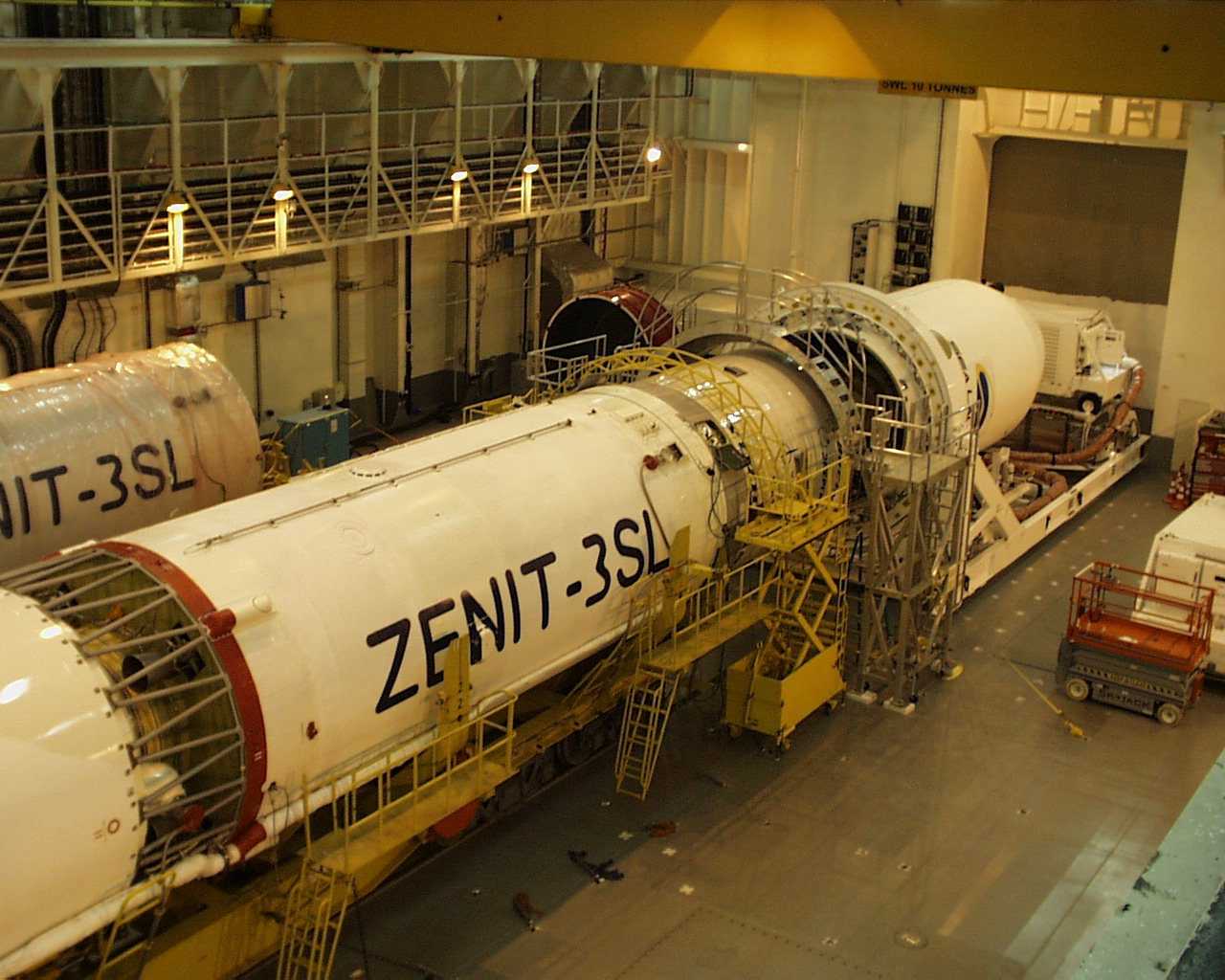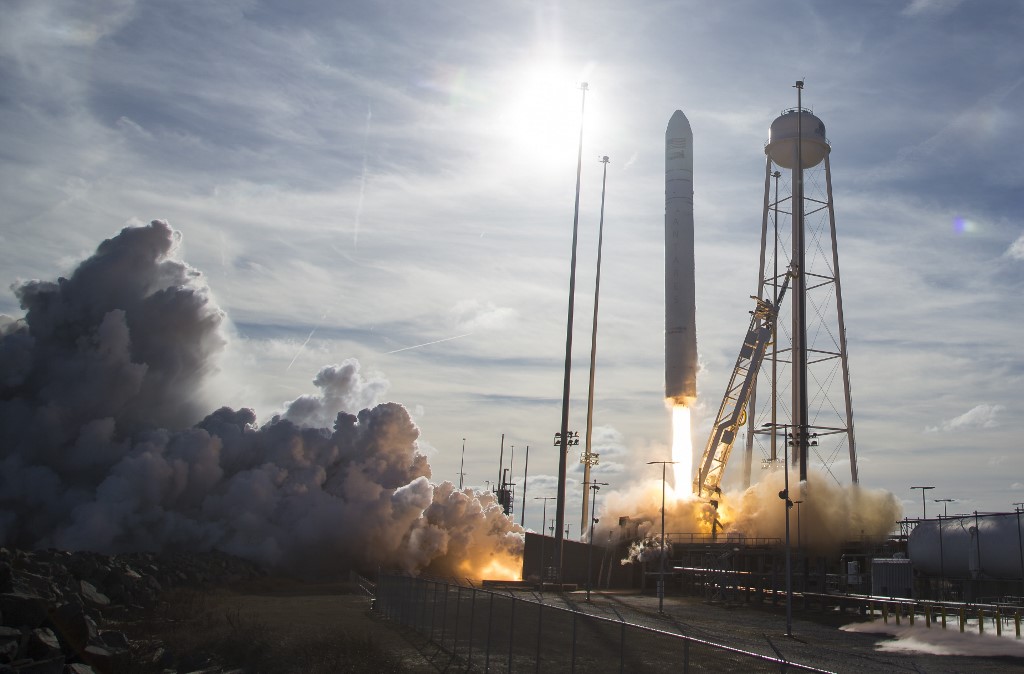The Ukrainian government abruptly sacked Volodymyr Usov, the head of the country’s State Space Agency, late on Nov. 16 without providing any explanation or announcing the management reshuffle beforehand.
Another government decree replaced Usov with his former first deputy, Mykhailo Lev, who was appointed as the space agency’s acting head.
In comments to the Kyiv Post, Usov said the dismissal caught him by surprise.
“The same as you — I learned about this from the news,” he said.
“No one articulated any reasons or made any arguments (for it). The Cabinet of Ministers just fired me overnight and that was it.”
Usov’s firing comes amid an ongoing major transformation of the country’s state-run defense and aerospace industries. According to a reform roadmap presented by the recently-created Ministry for Strategic Industries and its head, Oleh Uruskiy, the country’s space industry enterprises, such as the Pivdenne design bureau and the Pidvenmash factory based in Dnipro, must be separated from the space agency.
Instead, they should be incorporated into a brand new state holding company, Aerospace Systems of Ukraine, together with Kyiv-based aircraft production giant Antonov, which will be removed from the jurisdiction of state defense production concern UkrOboronProm.

Zenit-3SL space launcher
The new holding company will be under the full control of the Ministry for Strategic Industries.
Numerous anti-graft watchdogs have criticized the ministry, which was created in late July and still has no personnel or full-fledged legislative foundation, for trying to impose highly-centralized control over the country’s key industries.
On Nov. 4, Antonov Director General Oleksandr Los suddenly resigned after just 5 months in office. He offered no explanations for his exit. However, many in the industry tied his abrupt dismissal to the Ministry for Strategic Industries’ plans to assume full control of the legendary aircraft manufacturer.
Uruskiy’s policies as minister and his reorganization of Ukraine’s defense industries are widely seen as non-transparent, often conducted behind closed doors without any competitive selection or approval from UkrOboronProm’s independent Supervisory Board.
Uruskiy has denied all these accusations. He vows to revitalize the country’s withering defense and aerospace production and to create as many as 500,000 jobs in the industry.
Usov suggested that his firing was connected to the Ministry of Strategic Industry’s new approach.
“I can note that, in recent times, all key projects such as a corporate reform and a new space exploration program, got hung up. It seems that the new ministry wants to manage all this manually on its own,” he said.
Usov, 37, was appointed to head the State Space Agency in January following a competitive selection process.
A successful tech entrepreneur, he proposed a plan of reforms aimed at transforming the dying industry into a corporatized, highly-competitive ecosystem of 30-50 private and state-run enterprises.
He wanted the space agency to take part in policymaking and run projects like NASA does in the United States. The plan also envisaged government support for young companies with interesting ideas and projects in the space industry.
He also wanted to completely rebrand the State Space Agency, which had been in a state of continuous decline for years, and make it one of the top five global space agencies.
On Nov. 13, the Ukrainian agency joined NASA’s $35-billion project Artemis, which aims to put humans back on the Moon by 2024. Ukrainian engineers were expected to offer numerous ready-to-go projects for Moon colonization, such as industrial lunar base designs.

This handout photo released by NASA shows a Northrop Grumman Antares rocket, with Cygnus resupply spacecraft onboard, launching from Pad-0A, on Feb. 15, 2020 at NASA’s Wallops Flight Facility in Wattsville, Virginia. (AFP)
Usov plans to continue working in the Ukrainian space industry as a private entrepreneur.
“Now it’s obvious that space exploration can only be a privately-run business in Ukraine,” he said. “I’ll be doing that.”
According to Hlib Kanievskyi, head of the Kyiv-based anti-graft watchdog StateWatch, Usov’s dismissal is an example of the government’s “inconsistent and short-sighted policies.”
“In fact, Usov was sacked without being accused of any failures, just because Usov’s vision of corporate management reforms did not match Uruskiy’s vision,” he said.
Kanievskyi noted that, a year ago, Uruskiy himself took part in a competition to take the helm of the space agency, but was outmatched by Usov. Moreover, the minister did not present any official document explaining his own detailed plans for the space industry’s development.
“In my opinion, Usov’s dismissal is also a signal to a future space agency head signaling that he or she must be fully loyal to all ideas and orders personally issued by Uruskiy,” Kanievskyi said.
“Even if such things are not substantiated by any official document.”
